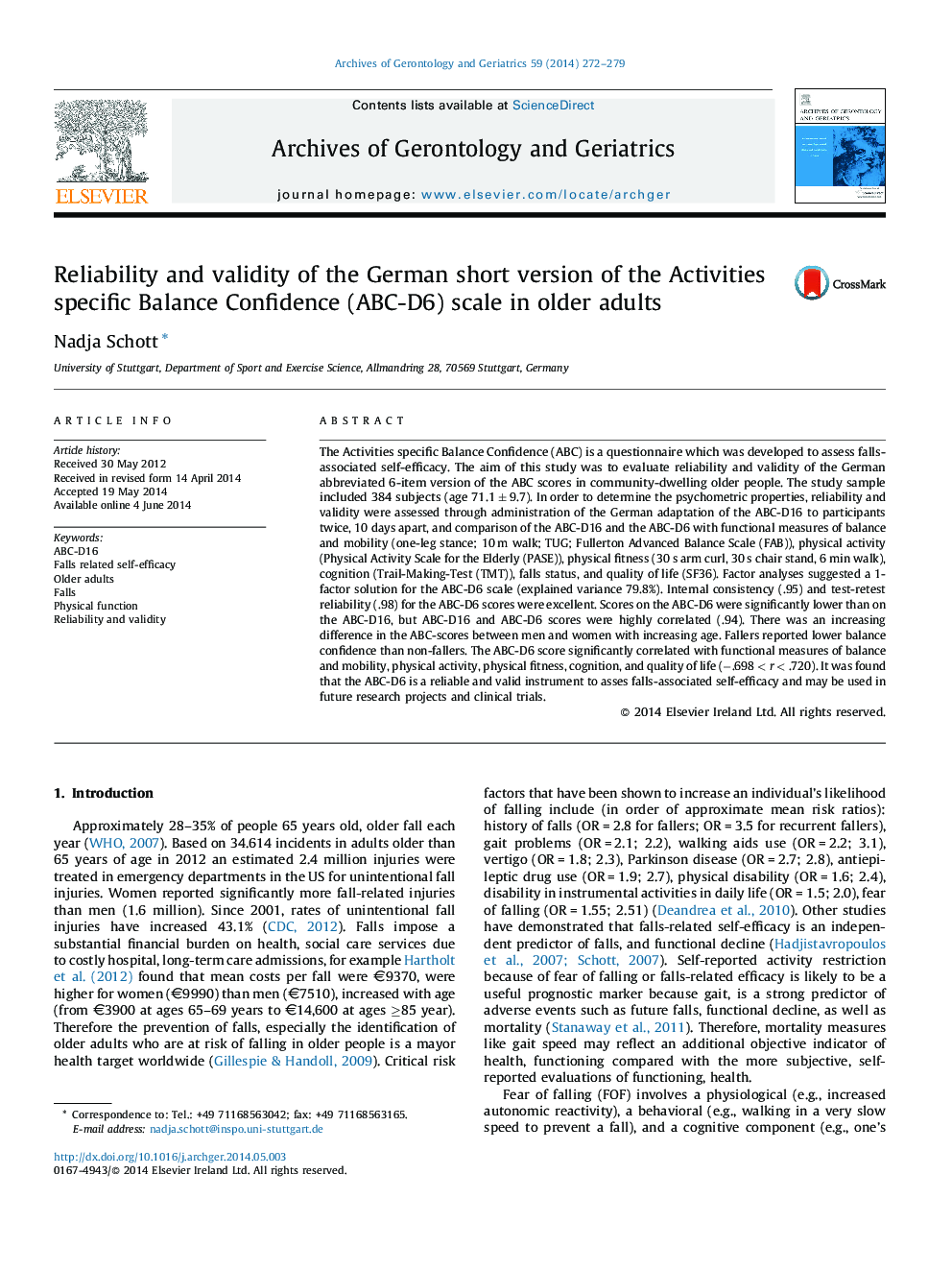| Article ID | Journal | Published Year | Pages | File Type |
|---|---|---|---|---|
| 1902929 | Archives of Gerontology and Geriatrics | 2014 | 8 Pages |
•Results indicate that the ABC-D6 is a valid and reliable measure of balance confidence in community-dwelling older adults.•The ABC-D6 can successfully be used as a measure of balance confidence among a broad range of older adults.•This study shows not only the relationship between the ABC-D6 and mobility, but also the physical activity and the mortality risk.•The development of the ABC-D6 is an example of an efficient and feasibly tool in busy clinical or research settings.
The Activities specific Balance Confidence (ABC) is a questionnaire which was developed to assess falls-associated self-efficacy. The aim of this study was to evaluate reliability and validity of the German abbreviated 6-item version of the ABC scores in community-dwelling older people. The study sample included 384 subjects (age 71.1 ± 9.7). In order to determine the psychometric properties, reliability and validity were assessed through administration of the German adaptation of the ABC-D16 to participants twice, 10 days apart, and comparison of the ABC-D16 and the ABC-D6 with functional measures of balance and mobility (one-leg stance; 10 m walk; TUG; Fullerton Advanced Balance Scale (FAB)), physical activity (Physical Activity Scale for the Elderly (PASE)), physical fitness (30 s arm curl, 30 s chair stand, 6 min walk), cognition (Trail-Making-Test (TMT)), falls status, and quality of life (SF36). Factor analyses suggested a 1-factor solution for the ABC-D6 scale (explained variance 79.8%). Internal consistency (.95) and test-retest reliability (.98) for the ABC-D6 scores were excellent. Scores on the ABC-D6 were significantly lower than on the ABC-D16, but ABC-D16 and ABC-D6 scores were highly correlated (.94). There was an increasing difference in the ABC-scores between men and women with increasing age. Fallers reported lower balance confidence than non-fallers. The ABC-D6 score significantly correlated with functional measures of balance and mobility, physical activity, physical fitness, cognition, and quality of life (−.698 < r < .720). It was found that the ABC-D6 is a reliable and valid instrument to asses falls-associated self-efficacy and may be used in future research projects and clinical trials.
